Keynotes
Keynote Speakers
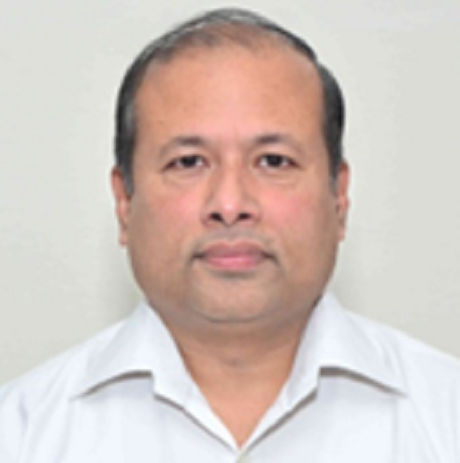
Title of Talk:
AI Applications in Energy Sustainability
Abstract of Talk:
The increasing demand for sustainable energy solutions has led to the integration of Artificial Intelligence (AI) in optimizing energy consumption and reliability across multiple sectors. This talk explores AI applications in renewable energy for electric cars, ships, and aeroplanes, focusing on efficient fuel utilization, reliability enhancement, and sustainability in transport. AI-powered predictive analytics, real-time monitoring, and intelligent energy management systems are improving fuel efficiency, reducing emissions, and enhancing the adoption of alternative fuels such as hydrogen and biofuels. By leveraging AI-driven solutions, industries can transition toward a more reliable and sustainable energy ecosystem, significantly reducing their carbon footprint while ensuring operational efficiency.
Brief Profile:
Dr. Narayana Prasad Padhy, Chairperson (I/C), Board of Governors MNIT Jaipur, Director, MNIT Jaipur and Director, IIIT Kota, Chair Professor IIT Palakkad Technology IHub Foundation (IPTIF), is a Professor (HAG) of Electrical Engineering and has served as Dean of Academic Affairs, IIT Roorkee, Founder Head Mehta Family School of Data Science and Artificial Intelligence, Professor In-Charge Training and Placement, NEEPCO and Institute Chair Professor at IIT Roorkee. Dr. Padhy is a prolific researcher in the area of Power Systems Engineering and Smart Grid, and has authored over 300 high quality papers with over 60 IEEE Transactions, with an overall citation of 10000 plus, h-index of 50, and i-index of 143. He has contributed significantly to the domain by way of securing 13 international/national research grants with a funding of over INR 200 million, successfully supervised 23 research scholars and currently supervising 21 research scholars, publishing research articles, writing six books, securing patents, laboratory development and developing online NPTEL courses. Dr. Padhy has held visiting positions at eminent international universities, and established research engagements and institutional tie-ups with universities from the US, UK, Denmark, Italy and Canada. He has collaborated with top industries and government agencies for research, laboratory development, and as a knowledge partner. He is well recognised in international and national professional bodies being Fellow of Indian National Academy of Engineering, The Institution of Engineering and Technology, UK, Institution of Engineers, India, Institution of Electronics and Telecommunication Engineers, India, and has actively contributed in various capacities towards their growth. He also represents the country at various international research platforms. Dr. Padhy is a well awarded and honoured scholarly professional at the national and international levels, including Alexander von Humboldt Experienced Research Fellowship, Samanta Chandra Sekhar Award, IEEE Smart City Jury Award, IEEE PES Chapter Outstanding Engineer Award from IEEE Power & Energy Society, USA, and BOYSCAST Research Fellow Award for Young Scientist.
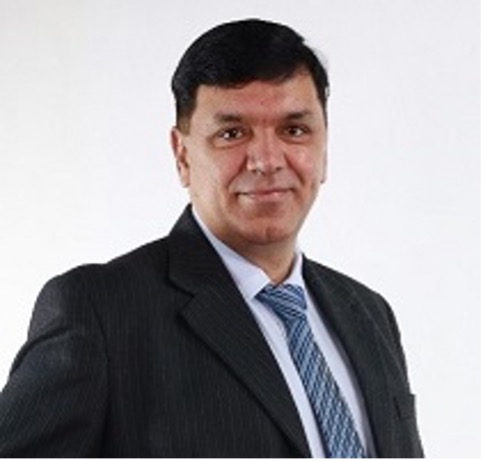
Title of Talk:
Emerging Metaverse Opportunities and Cybersecurity Challenges
Abstract of Talk:
Metaverse term has different aspects and concepts for the readers. The easy understanding of a reader’s metaverse is a new way of hue cyberspace. Metaverse does not refer to any specific technology but several cutting-edge technologies and how those will be used under specific conditions. Mainly it focuses on social networks in 3D virtual reality mode. It creates a virtual space by the combination of virtually enhanced physical and digital reality. This virtual world provides a lot within its virtual cyberspace, including digital currency, digital and virtual economy, and multiple owners can own it. Users can be able to buy and sell their goods and properties, and even users can sell and purchase other livelihood items including cars, clothes, and other living items. Metaverse claims even more at the next level to use the NFTs technology for digital assets. We expect many opportunities from Metaverse and its related technologies in the near future. Besides of these opportunities, the expected cybersecurity challenges are there as well, some of them such as NFTs, Darkverse, Financial fraud, Privacy issues, Cyber-physical threats, Virtual/augmented/mixed/extended reality threats, social engineering, and other related threats.
Brief Profile:
Professor Dr. Noor Zaman Jhanjhi, often referred to as N.Z. Jhanjhi, holds the esteemed position of Professor in Computer Science with specializations in Cybersecurity and Artificial Intelligence. He currently serves as the Program Director for Postgraduate Research Degree Programmes in Computer Science and Director of the Center for Smart Society (CSS5) at Taylor’s University, Malaysia. Recognized as one of the world’s top 2% research scientists for consecutive years in 2022 and 2023, he is esteemed as one of Malaysia's top three computer science researchers. Notably, he was honored as an Outstanding Faculty Member by MDEC Malaysia in 2022.
Prof. Jhanjhi boasts a prolific publication record with numerous highly indexed works in WoS/ISI/SCI/SCIE/Scopus, accumulating a collective research impact factor exceeding 1000 points. His Google Scholar H-index stands at an impressive 65, with an I-10 Index approaching 291, and a Scopus H-index of 42. With over 600 publications to his credit, including several international patents in Australia, Germany, the UK, and Japan, Prof. Jhanjhi has significantly contributed to the academic discourse.
An accomplished editor and author, he has curated over 50 research books published by esteemed publishers such as Springer, IGI Global USA, Taylor & Francis, IET, Elsevier, Wiley, Bentham, and Intech Open. Prof. Jhanjhi excels in mentoring postgraduate scholars, with over 38 scholars graduating under his tutelage. He also serves as Associate Editor and Editorial Assistant Board member for reputable journals and has received accolades such as the Outstanding Associate Editor award for IEEE ACCESS.
Renowned as a top-tier reviewer by Publons (Web of Science), Prof. Jhanjhi has evaluated over 60 theses as an external Ph.D./Master thesis examiner for universities worldwide. His extensive academic qualifications span 10 years and encompass accreditation bodies such as ABET, NCAAA, and NCEAC. Prof. Jhanjhi's diverse research interests encompass Cybersecurity, AI, IoT Security, Wireless Security, Data Science, Software Engineering, and Unmanned Aerial Vehicles (UAVs). Additionally, he has been invited as a keynote speaker for over 60 international conferences and has chaired numerous international conference sessions.
https://expert.taylors.edu.my/cv/noorzaman.jhanjhi
https://scholar.google.com/citations?hl=en&user=J6QVIncAAAAJ&view_op=list_works
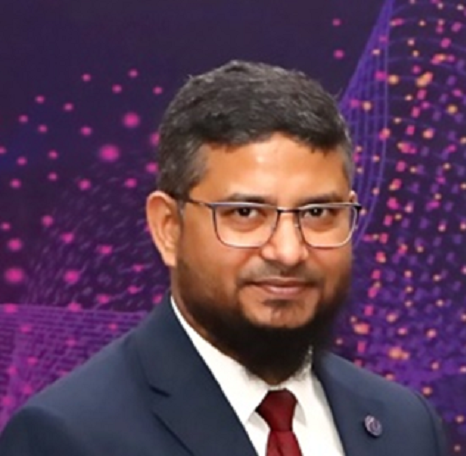
Title of Talk:
Cognitive Computing and Multimodal AI for Enhancing Healthcare and Quality of Life
Abstract of Talk:
With the global burden of chronic and neurological disorders expected to rise, future healthcare systems will increasingly rely on innovative technological solutions to improve service delivery and enhance quality of life. This talk will explore how cognitive computing and artificial intelligence (AI) transform diagnostics, personalised care, and preventive healthcare. It will outline how diverse data sources—such as neuroimages, brain and body signals, clinical records, and sensor data—can be responsibly used to detect and manage complex conditions like Alzheimer’s disease, autism spectrum disorder, and depression. It will emphasise the role of explainable and privacy-preserving AI to support the development of trustworthy, transparent, and patient-centric solutions. Finally, the potential of generative AI-driven brain imaging in developing future diagnostic systems will be discussed.
Brief Profile:
Dr Mufti Mahmud is a Professor in the Information and Computer Science Department at King Fahd University of Petroleum and Minerals (KFUPM), Saudi Arabia. Dr Mahmud holds a PhD in Information Engineering (Bioengineering Curriculum) from the University of Padova, Italy. He received a First Class BSc in Computer Science from the University of Madras (India) and an MSc in Computer Science from the University of Mysore (India) with Distinction. He then pursued an MS in Nano and Micro Electromechanical Systems (NEMS/MEMS) at the University of Trento, Italy. With over 20 years of experience in academia and industry in the UK, Italy, Belgium, Bangladesh, and India, Dr Mahmud has held several leadership positions, including a member of the University Shadow Executive Team at Nottingham Trent University (NTU), UK, Coordinator of the Computer Science and Informatics (B11) Unit of Assessment for the Research Excellence Framework at NTU, research group leader of the Cognitive Computing and Brain Informatics research group, and deputy research group leader of the Interactive Systems Research Group at NTU, fellow of the Medical Technologies Innovation Facility at NTU, and a member of the NTU Distance Learning Governance, Operation, and Steering Committee, as well as the International Mobility Committee. Dr Mahmud has (co-)authored over 350 peer-reviewed research outputs in journals, conferences, and books. According to Scopus (as of 28 Oct. 2024), he is the topmost academic in the East Midlands region of the UK in terms of the number of publications. His research has garnered significant attention, with over 10,400 citations. For his contributions, he has been listed among the top 2% of cited scientists in computer science globally since 2021, received the Vice-Chancellor’s Outstanding Researcher Award in 2021 at NTU, and won several best paper awards in leading conferences. Mahmud's research focuses on developing safe and trustworthy AI systems for mission-critical areas, such as healthcare, education, secure communication, etc. Dr Mahmud has secured research grants totalling approximately £4 million in these areas from prestigious funders like the European Union and the British Council.
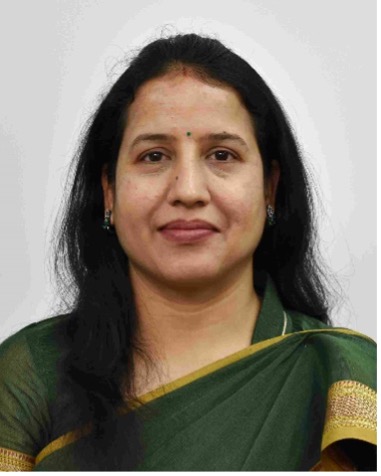
Title of Talk:
Smart Contract Vulnerabilities and Deep Learning
Abstract of Talk:
Smart contracts are utilized widely in developing safe, secure, and efficient decentralized applications. Smart contracts hold a significant amount of cryptocurrencies, and upgrading or changing them after deployment on the blockchain is difficult. Therefore, it is essential to analyze the integrity of contracts to design secure contracts before deploying them. As a result, the effective detection of various class vulnerabilities in smart contracts is a significant concern. While human specialists are still necessary for vulnerability detection methods that utilize machine learning and deep learning, these approaches often miss numerous vulnerabilities, leading to a significant false-negative rate. Hence there is a need for methods that significantly improve Ethereum smart contracts to circumvent these limitations. The best way to do this is using Deep learning. This talk explores about the role and future of DL in achieving it.
Brief Profile:
Dr. Meenakshi Tripathi is an Associate Professor in the Department of Computer Science and Engineering at Malaviya National Institute of Technology (MNIT), Jaipur. She earned her Ph.D. in Computer Science and Engineering from MNIT and brings over two decades of teaching and research experience in the fields of computer science and information security. Dr. Tripathi has authored more than 150 research papers published in reputed journals, conference proceedings, and edited volumes, including IEEE Transactions, International Journal of Computer Science, Computer Networks, and Journal of Supercomputing, among others. She has successfully supervised four Ph.D. scholars and is currently guiding five more. Dr. Tripathi actively contributes to several government-sponsored research projects funded by agencies such as DST, MEITY, DSIR, and DST Rajasthan, among others. She also holds two patents in her name: "A Bluetooth-Based Anti-Theft System" and "Blockchain-Integrated Device for Network Security." In addition to her academic contributions, she holds several prominent professional roles, including Dean at Vishwakarma Skill University, Jaipur; Board of Studies (BoS) member at the University of Kota and the Central University of Rajasthan; and former Chairperson of the CSI Jaipur Chapter. She was honored with the Active Participation Woman Award for Research by CSI-India in 2018. She has served as the Organizing Chair for numerous national and international conferences, faculty development programs (FDPs), and workshops, such as ICCIS 2023, ANTS 2023, ETNCC 2023 & 2024 (Namibia), ICDLAIR 2019, the ATAL FDP on "Cyber Security", as well as FDPs on "Software Defined Networks" and "Technical Writing: Tools and Techniques". She has also received funding from IEEE CIS to organize Summer Schools in 2022, 2023, and 2024. Dr. Tripathi is a Senior Member of IEEE, a member of ACM, and a life member of CSI. Her research interests include Cybersecurity & Adversarial Learning, Blockchain, Internet of Things (IoT) & Edge Security, Wireless Sensor Netwokrs, AI-generated Content and Deepfakes , Drone Swarms and their issues.
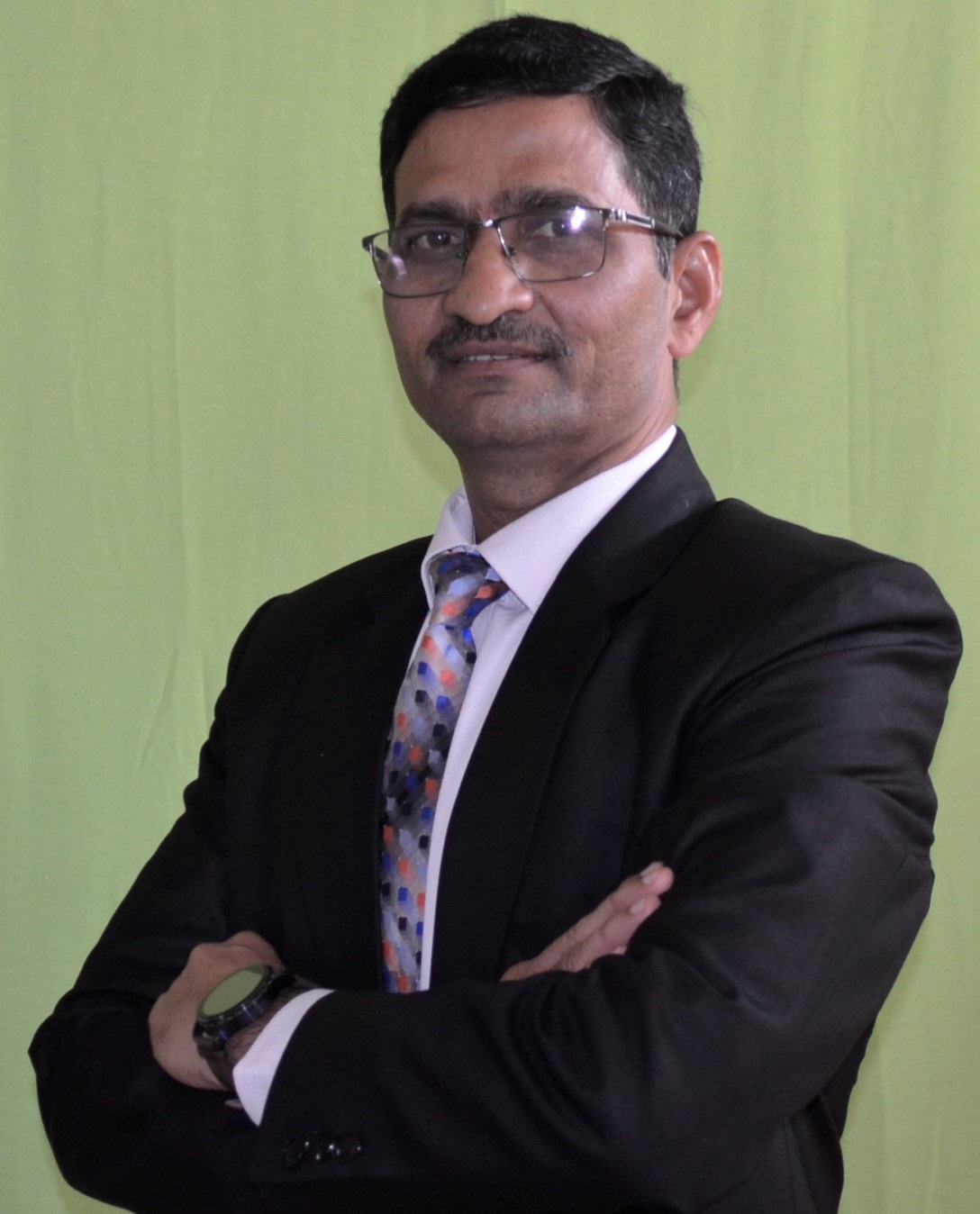
Title of Talk:
Machine Learning Made Easy: A Case Study on Computer Vision in AWS
Abstract of Talk:
Today, Smartphones have quality high resolution cameras, and taking a photo or video and sharing it has never been easier, resulting in the incredible growth of modern social networks like Facebook and Instagram. YouTube might be the second largest search engine and hundreds of hours of video are uploaded every minute and billions of videos are watched every day. The internet is comprised of text and images. It is relatively straightforward to index and search text, but in order to index and search images, algorithms need to know what the images contain. To get the most out of image and video data, we need computers to “see” an image and understand the content. In this talk, we introduce Computer vision with a brief about some machine learning processes. Then, we will discuss “Amazon Rekognition” for images and video of AWS and the algorithms for searchable image and video libraries. We also discuss some cases of Image moderation and sentiment analysis
Brief Profile:
Dr. Durgesh Kumar Mishra has received M.Tech. degree in Computer Science from DAVV, Indore in 1994 and a Ph.D. degree in Computer Engineering in 2008. Presently, he has been working as a Director and Professor SCSIT, Symbiosis University of Applied Sciences, Indore. He was founder Director, Microsoft Innovation Centre at SAIT, Indore, India. He is associated with Namibia University of Science and Technology as the Program Advisory Committee for Doctor of Philosophy Computer Science (NQF level 10). Ex-visiting faculty at IIT-Indore. He has 30 years of teaching and 15 years of research experience with a good number of citations with h-index and i-index. He has four patents granted and twelve published jointly with Ph.D. students and more than 100 papers in refereed journals and conferences in his research field. His Ph.D. is in Secure Multi-Party Computation for Preserving Privacy. He has organized a number of IEEE, ACM, and Springer conferences in the capacity of conference General Chair and editor of conference proceedings. He is a Sr Member of IEEE, ACM, and CSI and held many positions like Chairman, IEEE Computer Society Madhya Pradesh Section(2022 to 2023),IEEE MP-Subsection (2011-2012), and Chairman IEEE Computer Society Bombay Chapter (2009-2010). Chairman CSI Division IV Communication at National Level (2014-2018). National Treasurer Computer Society of India (2019-2021). At Present he is the Chairman IEEE Madhya Pradesh Section and Chairman of ACM Indore Chapter. Dr. Mishra visited and delivered his invited talk in Taiwan, Bangladesh, Singapore, Indonesia, Sri Lanka, Nepal, the USA, UK, and France. He has authored two books on “Database Management Systems” and “Programming in C and C++”. He edited 12 international books of Springer publication in his domain of Computer Science. He has been a consultant to industries and government organizations like the sales tax and labor department of the government of Madhya Pradesh, India. He has been awarded the “Paper Presenter award at International Level” by the Computer Society of India. He visited MIT Boston and presented his presentation on Security and Privacy he has also Chaired a panel on “Digital Monozukuri” at “Norbert Winner in 21st century” at BOSTON. He became a Member of the Bureau of Indian Standards (BIS), Govt of India for the Information Security domain. Recently, Microsoft invited him for his felicitation and to deliver his Innovation at Xi’an China. He has the recipient of many awards from the largest professional society CSI. Recently VDGOOD Society India, Awarded him as International Scientist Award for Engineering, Science, and Medicine.
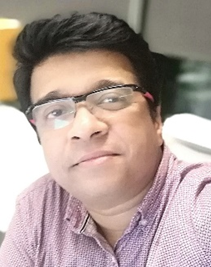
Title of Talk:
Metaverse in the 6G Era: Recent Advancements and Challenges to Overcome
Abstract of Talk:
Metaverse is an evolving paradigm that intends to provide 3D immersive experiences and self-sustaining virtual shared space that people can access via the Internet. Technologies like virtual reality (VR) and augmented reality (AR) are combined in the metaverse to create a sense of 'virtual presence – Internet in its 3D form’. To achieve its full potential, Metaverse must satisfy specific requirements, including low latency, high resource demands, robust network infrastructure, handling massive data volume, high data rate, security concerns, application interoperability to mention a few. 5G networks cannot support all these requirements to realize the true potential of Metaverse. It is envisioned that future 6G networks can help the different Metaverse applications to flourish to their full potential. This talk will discuss recent advancements in Metaverse and 6G networks, including how Artificial Intelligence and Machine Learning are changing Metaverse applications. Different research challenges will be highlighted as well.
Brief Profile:
Prof. Dr Sayan Kumar Ray is currently the Head of School of Computer Science and an Professor at Taylor’s University, Malaysia. Prior to this, he worked at Manukau Institute of Technology in Auckland, New Zealand, in different positions including the Head of School of Digital Technologies, Associate Dean of Faculty of Business and Information Technology, Head of Networking programmes, and Academic Leader of Research and Curriculum Development of Digital Technologies. Sayan also worked as Design Engineer at Tait Communications Ltd. In New Zealand and as consultant for other organizations in New Zealand. He completed his Ph.D in Computer Science from University of Canterbury in New Zealand, and Master of Technology and Bachelor of Engineering degrees both in Computer Science and Engineering, respectively, from the University of Calcutta and Gulbarga University in India. As an active researcher, Sayan’s research covers a broad range of topics, like Security and Trusts in Internet of Things (IoT), Intrusion Detection System in IoT, IoT applications in Healthcare and Disaster Management, Cybersecurity of Metaverse, 5G/6G Networks, Mobility and Handover in Multi-tier networks, Dynamic Spectrum Sharing and Management, Private 5G Networks, and Applications of AI and Machine Learning in Healthcare. He regularly publishes in top-tier journals and international conferences and his co-authored papers have featured in reputed venues like IEEE JSAC, IEEE Communications Surveys and Tutorials, IEEE Access, Journal of Networks and Computer Applications, Computer Networks, Future Generation Computer Systems, Sensors, IEEE WCNC, IEEE LCN, PACIS, etc. Sayan’s coauthored papers have won Best Paper Awards in EAI SmartGift 2021 conference, IEEE IEMCON 2020 conference, Alison Young Best Paper Award at CITRENZ 2019 Conference, IEEE ICOIN 2017 conference, Gowri Memorial Best Paper Award in IETE Technical Review Journal, and a Commendation Award at CITRENZ 2022 conference. He has won Research Excellence Award, Outstanding Performance Achievement Award, and Teaching Excellence Award at Manukau Institute of Technology, New Zealand. Sayan regularly gets invited to deliver keynotes and invited talks and has won multiple research grants, and scholarships. He is also the coinventor of two UK patents.
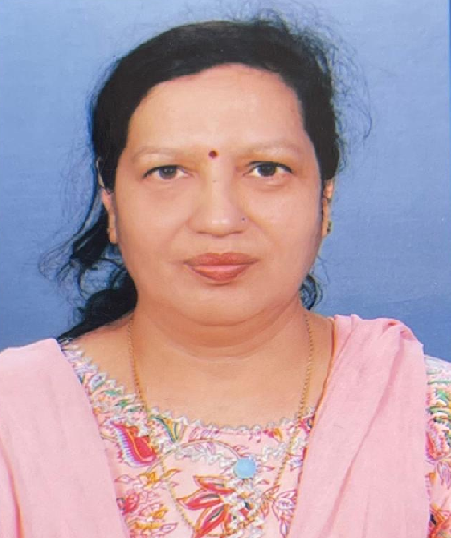
Title of Talk:
Visualization and Despeckling of Ultrasonic Images in Medical Image Processing
Abstract of Talk:
Biomedical image processing has really gone through an unbelievable expansion process and has been a multiple faceted disciplinary research field engaging expertise from useful mathematics, computer sciences, engineering, statistics, physics, biology and medicine. Medical images play vital role to explore the Anatomy of the human body, to diagnose diseases & to examine various illnesses. Image processing and its application in medical field include imaging modalities such as Ultrasound, Computed Tomography, Magnetic Resonance Imaging and Positron Emission Tomography. Mathematics of these modalities are using in Medical Imaging. By Visualization of 2-D medical ultrasonic images, filtering is done to remove noise. Main problem with ultrasonic images is occurrence of speckle noise and because of speckle noise the image resolution and contrast become concentrated, which affects the diagnostic appraisal of this imaging modality. It can affect picture quality. We will discuss how to remove speckle noise by applying image processing filters so radiologist can get better picture for good clinical results. In this talk we will also discuss about various methods and tools for speckle noise suppression for medical B-scan ultrasonic images, denoising with wavelets, reduction of speckle noise by using image processing filters.
Brief Profile:
Prof. Manju Mandot is Director and Professor in the Department of Computer Science and IT, JRN, Rajasthan Vidhyapeeth University, Udaipur, Rajasthan-India. She has more than 30 years of experience in teaching, administrative, research in the field of Computer Science. Dr. Mandot did her Ph.D in the Computer Science. She has been actively involved in research, development, and clinical application of medical imaging technologies for the past 15 years. She has supervised 16 research scholars. She has published more than 80 research articles, written five books, securing patents. She has invited as keynote speaker for National and International conferences and chaired numerous international conference sessions. Dr. Mandot has been consultant to industries and government organisations
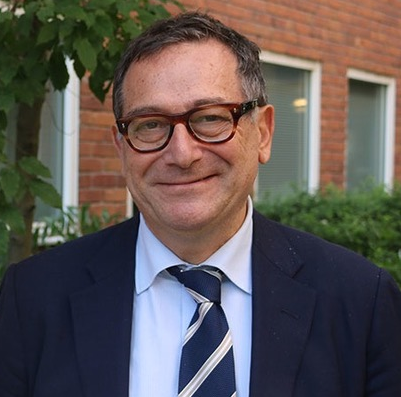
Title of Talk:
Digital Health and Neurodegenrative diseases: new approches for the aging brain clinic and research
Abstract of Talk:
Neurodegenerative diseases represent the new emergency because of the their exponential growth due primarly to increase of the size fo the general population and of the expectation of life in the whole world. These demographic factors are driving also the geographic distribution of this new emergency that is now primarly in East and South Asia. In the future this wave of diseases and cases will surely affect Sub-Saharian Africa.
Alzheimer’s disease, the most common, has for the first time effective treatment with the recent approval of antiamyloid therapies in Asia, North America ad Europe. These therapies to be effective need early diagnosis and biological diagnosis with the use of imaging and fluid biomarkers. With the introduction of plasma based biomarkers for the first time we are going to have valid , easy access, transportable and cheap biomarkers. With the introdcution of new Technologies for many biomarkers we are going to have large amounts of heterogeneous data for many variables with the key aims of providing diagnosis and prediction of status ( prognosis) with apersonilized medicine approach. The substitution of traditional statistical frequentistic approach with tecniques like deep learning and random forest is needed both in research and in clinical medicine. The theoretical introduction of the digital twin model in this research setting will be discussed as a new tool determine the observed phenotype and predict the future status of complex dynamic systems as the brain and of compkex and interacting cognitive/behavioral/ motor functions. In the digital twins complex data (the physical twin) will be used to construct representative models ( the digital twin) with the use of nanotechonologies ( sensors for continous monitoring) and AI ( to build up advanced self-supervised learning (SSL) algorithms). In this rapidly evolving fiels, the most important challenge is the scarsity of human usable data for AI application( metric and longitudinal data). The traditional clinical medical approach is useless in this context. A model from our center on neurodegenerative disease and the aging brain (CMNDG) in South Italy will be presented with the sistematic collection of high quality, multidimensional, and metric data.
Brief Profile:
Prof Giancarlo Logroscino, MD PhD is the director of the Neurodegenerative Diseases Unit of The University of Bari and Chair of the Department of Clinical Research in Neurology at Pia Fondazione Panico in Tricase (LE). He is full Professor of Neurology at University of Bari. He has been trained in Neurology (University of Bari) and Epidemiology (PhD, Columbia University NYC). He has been associate professor of epidemiology and neurology at Harvard University (2002-2008). His primary research interests are natural history of neurodegenerative diseases and environmental risk factors for neurodegenerative diseases related to aging. He has conducted studies on Parkinson’s disease, Amyotrophic Lateral Sclerosis, Alzheimer’s disease, Fronto-temporal dementia, Lewy Body Diseases both in clinical settings and in population based settings. He is leading projects and studies in Europe and outside Europe. He has studied the role of dietary factors and iron/iron (metals) metabolism in Parkinson’s disease and Alzheimer’s disease. He has established one of the first population-based registries of Amyotrophic Lateral Sclerosis in the world, (SLAP) based in Apulia, Southern Italy. He is a member of the steering committee of EURALS, the European project on descriptive and analytic factors of ALS. He is part of EUROMOTOR consortium. He is the co-PI of a Center for Disease Controls (CDC) founded, project to study ALS and cognitive impairment in ALS in South America. He has established a populationbased registry for Rare Neurodegenerative Diseases in Puglia (SLAP_Dem_Puglia_Registry). A similar project has been recently launched in Albania, Kossovo and Montenegro (Balcanic area) and Cambodia. He is focusing on the aging brain and risk/protective factors for cognitive decline and longevity with data from prospective cohorts both in the US and Europe. He is the PI of the Great Age study, a population-based study on aging, frailty neurodegeneration and diet in Castellana Grotte (BA), recently awarded by a special grant for aging research. In this study eight research groups are studying the complexities of the aging process.
He is working on methodological issues on studies of neurodegenerative diseases. In this context is a member of MELODEM (methods in longitudinal studies of dementia). He is part of the of the Global Burden of Diseases (GBD) and of the task force on neurology of the Global Burden of Disease (GBD) founded by World Bank and Bill and Melissa Gates Foundation.
